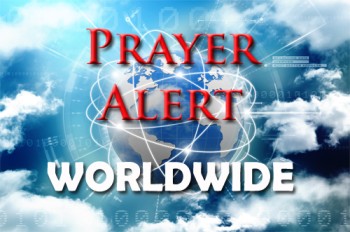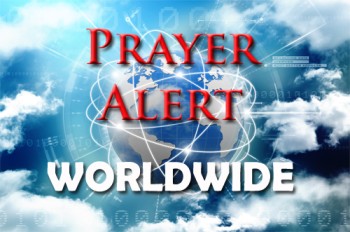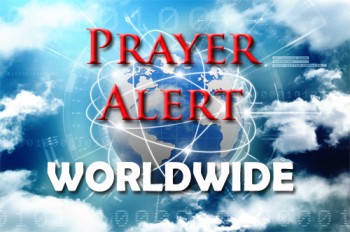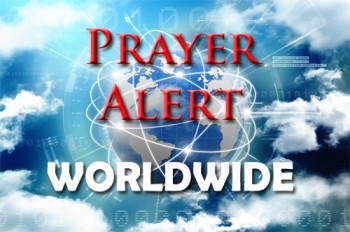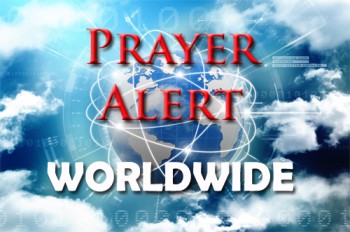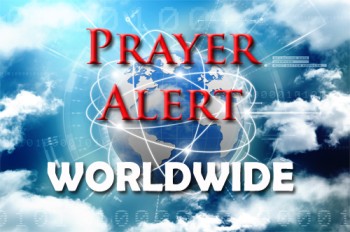Displaying items by tag: Nigeria
Nigeria: insurgents continue attacking
For twenty years Nigerian Christians have suffered attack after attack, with little to no response from the largely Muslim government. Anti-Christian violence is often swept under the carpet. On 20 March community members had just finished their church worship when armed insurgents arrived with sophisticated weapons, an eyewitness told International Christian Concern. ‘Twenty-five people were killed and over 100 houses burnt down.’ He added that the evening attack occurred from 7 to 10 pm, without any intervention by the Nigerian army. The total number of casualties is yet to be released. ‘We are now hiding, our church and houses burnt; we are sleeping outside tonight’, said another eyewitness. Nigeria is one of the worst countries in the world for persecution. Due to violent terrorist groups and government indifference, tens of thousands have been killed and millions displaced.
Africa: potential new energy market
African countries have some of the world’s deepest gas reserves. President Hassan said Russia’s invasion of Ukraine is an opportunity for gas sales: Tanzania aims to secure a new energy market outside Africa and has been working with Shell to utilise their vast offshore gas resources and export elsewhere. He said, ‘Whether in Africa, Europe or America, we are looking for markets.’ Nigeria, Africa’s largest gas producer, has similar plans. They intend to build a trans-Sahara pipeline, taking their gas to Algeria and Europe. They recently signed an agreement with Algeria and the Niger Republic to construct the 381-mile-long Trans-Saharan Natural Gas Pipeline, beginning in northern Nigeria. However there are concerns over the historic lack of investment in gas infrastructure that has hampered the energy industry. Many African countries with massive gas reserves have struggled to attract investment to build gas infrastructure projects that would have supplied the European market. Ask God to use the current Russian gas situation to take many African nations out of poverty.
Nigeria: militants kill Christians, soldiers do nothing
On 28 January a contact in Nigeria discovered over 500 bullet shells used in the killing of eighteen Christians in Ancha village, located about two hours from the capital of Plateau State. Villagers said the attackers were Fulani militants dressed in black while others wore the uniform of the Nigerian army. Thirty soldiers with AK47s were stationed in a classroom in the community when the attack happened. The converted classroom served as a barracks for the soldiers. Despite being stationed inside the village, the soldiers did not defend it against the invading militants. Instead, they stood by and watched as houses were burnt, cars and food were destroyed, and villagers were killed. During the attack, the soldiers protected only their two vehicles and the converted classroom. This attack is just the latest in a years-long pattern of militant violence committed against Ancha and neighbouring villages. Often bullet shells found belong to the army.
Global: persecution in 2022
Islamist extremists are gaining ground in sub-Saharan Africa, including Burkina Faso and Mali. Christians are bombed, killed, and kidnapped; schools are burnt. Jihadists have assaulted religious leaders and places of worship, and forced churches to close and meet in secret. The situation is set to grow worse as French troops withdraw from the area. Life for Christians in the Sahel region now resembles Nigeria, where Boko Haram terrorists, IS fighters and Fulani militants are active. For all three, Christian communities are their prime targets. Afghanistan and India are also countries of great concern. Since the Taliban recaptured Afghanistan, Christians have faced greater risks of violence and betrayal by family and neighbours. Major food shortages will increase pressure on them. Indian Hindu militants are attacking Christians, and some states have anti-conversion laws to prevent Christian outreach among the Dalits where many are turning to Christ.
Nigeria: plans for Leah Sharibu's release?
The Nigerian government says efforts are under way to release Leah Sharibu, the Christian teenager who was one of 110 girls abducted in 2018 by the Boko Haram group ISWAP. Her classmates were released, but Leah refused to convert to Islam and was declared a ‘slave for life’ by ISWAP while remaining in captivity. The federal government announced it is using the military to ensure Leah and all captives regain their freedom, and armed groups operating in Nigeria’s northwest are now called terrorists. Reacting to the announcement, Dr Kathaza Gondwe, advocacy director for CSW, said, ‘It is belated news as Nigeria’s president has been promising Leah's parents since 2018 that he would work quickly to ensure her release. But it's a welcomed development. We can only pray the government will honour this commitment.’ CSW believes that categorising ISWAP as terrorists will help in how the armed forces deal with them.
Nigeria: one million expired doses of vaccine destroyed
The national primary health care agency (NPHCDA) destroyed 1,066,214 expired doses of the AstraZeneca vaccine that were donated to them in October but had to be used by November. The decision to destroy the vaccinations followed several testing processes showing it was necessary to destroy them to protect Nigerians from being harmed. NPHCDA’s director said they had an option to try and use these vaccines beyond the labelled expiry date, but decided to destroy them at the point they expired. The vaccines came with a short life span, some as short as two weeks. NPHCDA said while Nigeria appreciated the gesture of the donors, it was not in the interest of Nigeria that vaccines with a short lifespan were sent there. Only ten million Nigerians have been vaccinated to date: Nigeria’s target is 110 million people.
Nigeria removed from US ‘Countries of Particular Concern’ list
Nigeria regularly sees ongoing massacres of indigenous Christians, and security forces imprison free thinkers for the ‘crime’ of blasphemy. Nevertheless, the USA removed Nigeria from its Countries of Particular Concern (CPC) list. On 2 December Rev John Hayab wrote an article in Nigerian Voice stating, ‘The US’s delisting Nigeria from its CPC list is appalling, as the persecution of Christians is still at its peak. Because Nigeria still has grave problems with religious persecution, this action is like a doctor discharging a patient from hospital even though they are still critically ill. What that signifies is telling the patient to go home and die. The USA was either ill-advised or does not care what happens in Nigeria. It does not comprehend that the current regime wants to impoverish and weaken the Christian community without letting the international community notice it. The Nigerian government employed highly professional lobbyists to convince the US state department to reach its decision.’
Nigeria: lawlessness and ‘fake news’
Luka Binniyat, a Christian journalist, faces three years’ imprisonment after reporting on attacks against Christian communities and critical assessments of the government’s response. He was arrested on 4 November and charged with electronically transmitting information ‘known to be false’. Many believe his arrest is aimed at silencing dissenting voices and intimidating Luka and Kaduna communities. Luka has persistently challenged the government on issues of security and killings in southern Kaduna. This charge follows his report on police failing to make any arrests after gunmen killed 35 people in two separate attacks on churches. He said, ‘In Nigeria, police decry massacres as “wicked” but make no arrests’. Pray for Luka’s release and for an end to criminalisation of journalism. Meanwhile bandits invaded Emmanuel Baptist Church, service killing two, seriously injuring three, and kidnapping 66. Rev Joseph Hayab said, ‘The abducted worshippers are in danger and require urgent government intervention.’ The insecurity in Kaduna state has grown beyond imagination and is threatening Nigeria’s peace.
Nigeria: ‘all we have left is God and hope’
Fulani herdsmen attacked a worship service at an evangelical church in Kachia county, killing one and wounding many others. Then they destroyed dozens of homes in two villages, wounding more Christians and killing thirty. ‘Our hearts are filled with pain, fears, bitterness and disappointments,’ said a survivor. ‘The trauma, the macabre series of murders, the daily kidnappings, attacks on farmers and destruction of crops, the burning of houses, churches and humans alive, the mass burials. All we’ve got left is God and hope.’ A few days earlier an agitated mob hacked Rev Yohanna Shuaibu to death and burned down his home, church and school over the killing of a woman by a man they believed had converted to Christianity. Pastor Shuaibu had built a school for indigenous Christian children denied an education because of their faith. May God comfort all the bereaved, heal the physically and emotionally injured, and provide for all the homeless.
Nigeria: secular Sharia?
The idea that Nigeria is well-intentioned but under-resourced to contain religious violence is incomplete. The government may be under-resourced, but is not blameless in the matter of sectarian violence. Government forces have fought to quell the violence in some instances, but in others they exacerbated the problem if not created it in the first place according to a report by International Christian Concern. The report considers ways which Nigerian states contribute to discrimination and violence against Christians: in particular, twelve northern states which adopted Sharia criminal law, leading to problems for Christians in the region and impacting their ability to participate as equal members of society. Using Sharia to adjudicate on criminal matters has done significant real-world harm, and the departure from secularism has harmed Christians in northern Nigeria.The report recommends the US government to establish an official stance against non-secularism in northern Nigeria, rework aid delivery to Christians, and appoint a special envoy to address each region’s issues.
